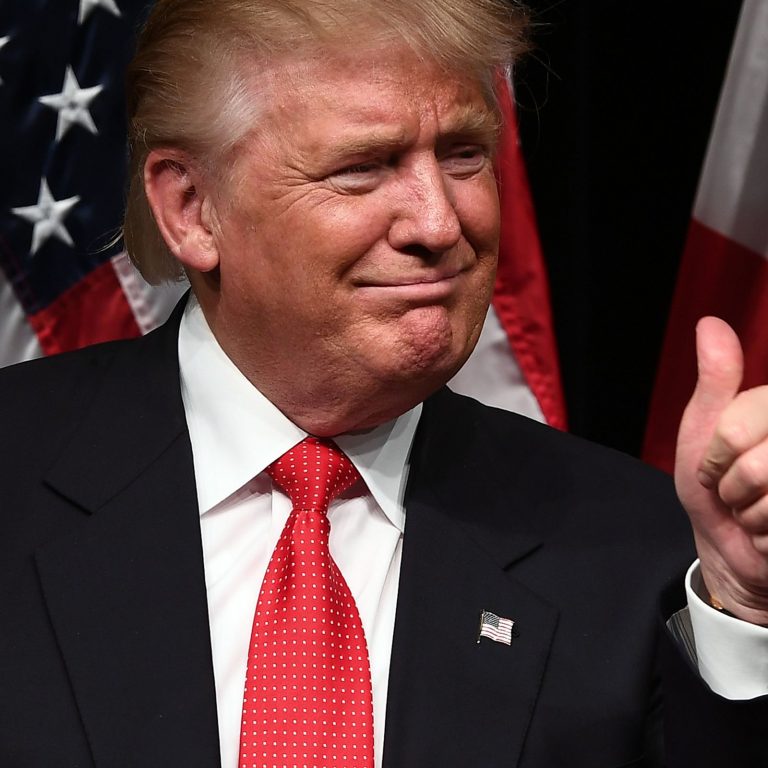Latest news about Bitcoin and all cryptocurrencies. Your daily crypto news habit.

U.S. president Donald Trump has signed an executive order banning American citizens from using Venezuelan cryptocurrencies. In effect, this means that the petro, recently launched by Venezuelan president Nicolas Maduro, is now illegal in the U.S. The controversial cryptocurrency was widely seen as a means to evade economic sanctions imposed by the U.S. The executive order is the latest move by the Trump administration to cut off Maduro’s funding, and is the first time the U.S. president has been officially linked with cryptocurrency.
Also read: Venezuela Picks FX Platform to Auction Petro ‘Oil-Backed Cryptocurrency’
U.S Vetoes the Petro
“I, DONALD J. TRUMP, President of the United States of America, in order to take additional steps with respect to the national emergency declared in Executive Order 13692 of March 8, 2015, and relied upon for additional steps taken in Executive Order 13808 of August 24, 2017, and in light of recent actions taken by the Maduro regime to attempt to circumvent U.S. sanctions by issuing a digital currency in a process that Venezuela’s democratically elected National Assembly has denounced as unlawful, hereby order as follows,” begins the order published on the White House website today, March 19.
 The order continues: “All transactions related to, provision of financing for, and other dealings in, by a United States person or within the United States, any digital currency, digital coin, or digital token, that was issued by, for, or on behalf of the Government of Venezuela on or after January 9, 2018, are prohibited as of the effective date of this order.” Due to the pseudo-anonymous nature of cryptocurrencies, it would be extremely difficult for U.S. authorities to catch anyone illegally trading the petro on domestic soil. The ban is largely a symbolic one.
The order continues: “All transactions related to, provision of financing for, and other dealings in, by a United States person or within the United States, any digital currency, digital coin, or digital token, that was issued by, for, or on behalf of the Government of Venezuela on or after January 9, 2018, are prohibited as of the effective date of this order.” Due to the pseudo-anonymous nature of cryptocurrencies, it would be extremely difficult for U.S. authorities to catch anyone illegally trading the petro on domestic soil. The ban is largely a symbolic one.
This Kills the Petro
That the Trump administration should choose to kill the petro comes as no surprise. The announcement, when it arrived, was sudden and without warning though. The significance of this being the first executive order to prohibit use of a cryptocurrency is notable, even though it is a regime, and not crypto, that’s the direct target. (A previous order signed by President Obama enabled authorities to confiscate crypto, but referred only to “cyber-enabled activities”.) President Trump has issued 65 such orders since coming to office, an average of 56 per year. That makes him the 15th most prolific president for issuing orders, considerably far behind President Roosevelt who churned out 307 per year.
The petro isn’t explicitly named in the executive order, although Petroleos de Venezuela is, and there’s no doubt which crypto the U.S is seeking to ban. The order curtailing use of the petro is unlikely to directly affect U.S investors, who will have already known to avoid it. It may cause other nations to stay away, however, for fear of irking the U.S.
If an executive order can be filed restricting the use of the petro, there is no reason, theoretically, why a similar decree couldn’t be made against privacy coins, for example, if the U.S. deemed them a threat. In practise, there is nothing to suggest today’s order is the thin end of the wedge, and that further decrees will be forthcoming. It’s certain that cryptocurrencies will have cropped up in President Trump’s daily briefings since coming to office. Today will go down in history, however, as the first time a U.S. president signed an executive order devoted to cryptocurrency.
Do you think the president’s executive order will affect sales of the petro? Let us know in the comments section below.
Images courtesy of Shutterstock.
Need to calculate your bitcoin holdings? Check our tools section.
The post Trump Signs Executive Order Banning Venezuela’s Petro Cryptocurrency appeared first on Bitcoin News.
Disclaimer
The views and opinions expressed in this article are solely those of the authors and do not reflect the views of Bitcoin Insider. Every investment and trading move involves risk - this is especially true for cryptocurrencies given their volatility. We strongly advise our readers to conduct their own research when making a decision.

